 From PWFA to the PUMP Act: Applying New Rules Affecting
From PWFA to the PUMP Act: Applying New Rules Affecting
|

|
Sick Leave Tips to Stay Compliant When Handling Routine and Complex Requests
|
|
|
|

|

|
|
Attorney Debra D'Agostino shares what you need to know and do to comply with the Pregnant Workers Fairness Act and the Providing Urgent Maternal Protections for Nursing Mothers Act.
|
Improperly denying sick leave will lead your agency into administrative and legal complaints.
|

|
|
Selecting and Framing Federal Employee Disciplinary Charges: Keys for Success
|

|
Return to On-Site Work: Getting Reasonable Accommodation Right for Federal Employees With Disabilities
|
|
|
|

|

|
|
Properly selecting and framing the charge is the critical first step in making your agency’s discipline stick.
|
Your agency has to balance meeting RTO requirements and accommodating employees who claim their disabilities prevent them from returning to the workplace.
|

|
|
Douglas Dilemma Unraveled: How to Properly Apply Aggravating, Mitigating, and Neutral Factors
|

|
Staying Compliant When Addressing Federal Employee Relations Issues in Telework, Hybrid and Remote Work
|
|
|
|
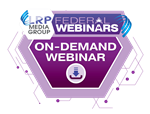
|
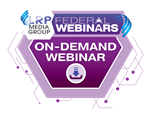
|
|
Did an employee's mental impairment play a role in the charged conduct?
|
This presentation drills down into the issues your agency faces when managing and disciplining federal employees who are working remote, telework and hybrid jobs. With lessons drawn from MSPB and Federal Circuit case law, attorney Kevin Owen gives you best practices to address specific trouble spots.
|

|
|
Performance-Based Actions in Today’s Federal Workforce: Current Compliance Guidance
|

|
Addressing Complex Disability Accommodation Issues in Agencies’ Telework, Hybrid and Return to On-Site Work
|
|
|
|
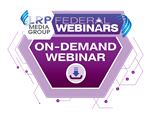
|
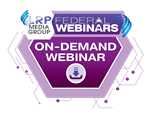
|
|
Taking a performance-based action under Chapter 43 requires your agency to follow strict rules.
|
With today’s varied federal work environment, employees’ accommodation requests are getting more complex.
|

|
|
Barbara Haga on FMLA Compliance: Techniques to Tackle Your Agency’s Top Trouble Areas
|

|
Douglas Factors Worksheets Dos & Don’ts to Support Your Agency’s Discipline Cases
|
|
|
|
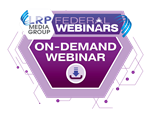
|
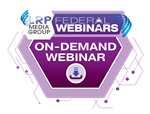
|
|
Breaking down complex leave situations into practical compliance steps is what makes FMLA expert Barbara Haga one of the federal community’s most popular trainers.
|
MSPB administrative judges closely scrutinize Douglas factors worksheets — and just one small error or inconsistency can torpedo your agency’s discipline case before it even begins.
|

|
|
Pregnant and Nursing Employees: Meeting Agencies’ New Accommodation and Anti-Discrimination Requirements
|

|
New MSPB’s Hidden Gems: Best Practices & Pitfalls From Non-Precedential Decisions
|
|
|
|
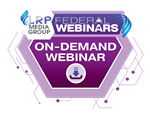
|
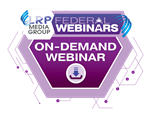
|
|
Along with the Pregnancy Discrimination Act, your agency has two other laws to follow regarding pregnant and nursing employees that bring a slew of additional requirements.
|
Even though the MSPB’s non-precedential decisions are not controlling case law, they contain a lot of valuable teaching points and signal how the board will likely rule in the future.
|

|
|
From Accommodation to Inclusion: Legal Issues of Managing Federal Employees With Mental Disabilities
|

|
Properly Framing Charges Under the New MSPB
|
|
|
|
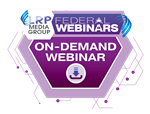
|
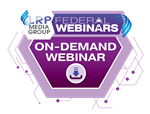
|
|
Properly handling issues related to employees’ mental disabilities is a perennial challenge for agencies.
|
It's very difficult to correct charge framing mistakes after the fact, so getting the charges right is the first step to making an adverse action hold up on appeal.
|

|
|
Drafting Defensible Proposal and Decision Letters: Dos and Don’ts Under the New MSPB
|

|
Getting Reasonable Accommodation of Disabilities Right for Federal Remote, In-Person and Hybrid Work
|
|
|
|
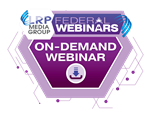
|
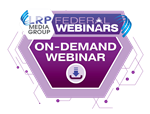
|
|
Proposal and decision letters have always been ripe with pitfalls and potential due process violations. And because the MSPB isn’t as “employee friendly” as many predicted, it’s critical to understand the Board’s thinking.
|
With high numbers of federal employees seeking reasonable accommodation for today’s varied work environments and the EEOC’s increasing findings of disability discrimination based on agency missteps, get essential training to ensure your agency’s processing of reasonable accommodation requests is timely and compliant with EEOC case law.
|

|
|
Adverse Actions for Poor Performance: Choosing Your Agency’s Best Path
|

|
Religious Accommodation in the Federal Workplace: Answering Your Agency’s Tough Questions
|
|
|
|
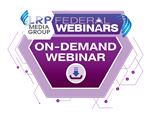
|
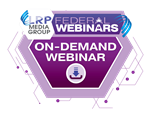
|
|
When taking a performance-based action under Chapter 43, you must provide an opportunity for the employee to improve. Under Chapter 75 you can expedite the discipline, but a higher standard of proof applies.
|
Religious accommodations are some of the most complex, and potentially sensitive, situations that federal practitioners have to address.
|

|
|
Your Agency’s DEIA Strategic Plan: Addressing Trouble Spots for Continuous Program Improvement
|

|
Excessive Absences in Today's Federal Workforce: Tips for Preparing Cases
|
|
|
|
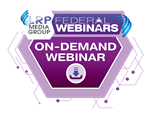
|
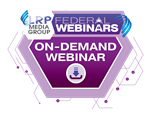
|
|
Now that your agency’s initial Diversity, Equity, Inclusion, & Accessibility Strategic Plan has been submitted, you have to assess its progress and make needed changes for the next plan due in March 2023.
|
When employees abuse leave, your agency can – and should – address the situation swiftly.
|

|